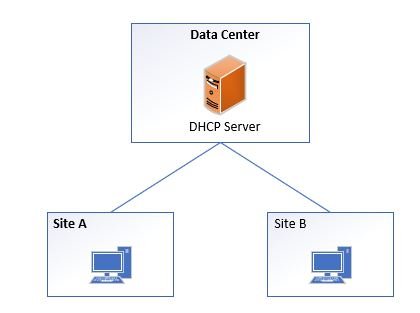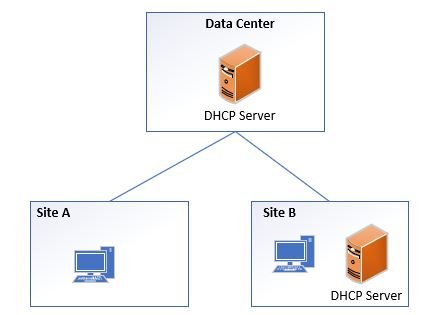Central vs Distributed DHCP Server
Do you have a large network with branch offices at multiple locations?
The question is do you install a DHCP server at these branch offices or have them tunnel back to a centralized DHCP server?
Centralized DHCP Server
A centralized DHCP server is placed at a centralized location that the remote offices connect to for DHCP. This is typically located at one of the main data centers. In this design there are no local DHCP servers, all requests go back to the centralized server.

Distributed DHCP Server
In a distributed DHCP model there are DHCP servers at the local branch office. In this model the clients get IP addresses from the local DHCP server.

So which option is best?
This can be answered by one simple question?
Can the branch office work entirely by itself with no connection back to the data center? If yes then it makes sense for there to be a local DHCP and DNS server.
If the branch office tunnels back to the data center for the internet, Active Directory, DNS, and so on then there is no point in putting DHCP locally.
I work for a company that has offices throughout the state and I use a centralized DHCP model. We have reliable fast connections so it makes sense for us to use a centralized DHCP server.
One thing to consider is how many employees are at the branch office. If you have a very large branch office with thousands of employees then having local resources like Active Directory, DNS and DHCP can be helpful. That will be a lot of traffic going across the WAN link and if the link goes down it would take all those employees offline.
Summary
Choosing between centralized or distributed DHCP can often be answered with the following question “Can the branch office work with no connection back to the data center. Size of the remote office and connection speed back to the datacenter can also be a factor.